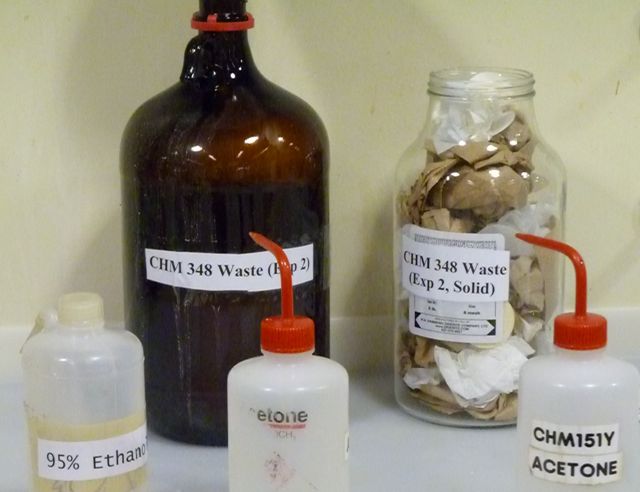Pedagogical Research Opportunities
Andy Dicks, Department of Chemistry
Finding ways to refresh the undergraduate curriculum is a recurring challenge for many educators. To find a solution for his students, Senior Lecturer Andy Dicks turned to the group with the strongest vested interest: the students themselves.
Since Dicks began at the Department of Chemistry on St. George in 2001, he has offered Research Opportunity (or ROP) courses for undergraduates with the goal of engaging them in designing laboratory experiments for 2nd- and 3rd-year courses. His initial target was to work with one 4th-year student (CHM 499Y) to design three new experiments that could be replicated by a class of undergraduates, with topics that had clear “real-world” relevance. This later expanded to include opportunities for 2nd-year students (CHM 299Y), co-supervised by graduate students, and a third initiative to offer TA stipends for graduate students to focus on similar teaching projects. Every year the course offerings are different depending on interest.
Research also becomes an outcome for Dicks’ students, as almost every project has led to a publication in a teaching-related journal, such as the Journal of Chemical Education. Two former ROP undergraduates also contributed chapters to Dicks’ recent textbook on teaching green chemistry, and others have successfully presented at the annual Southern Ontario Undergraduate Student Chemistry Conference. When the experiment finally makes it to a course, he enjoys telling his current class, to their surprise, that the authors of the lab material are not professors, but in fact students.
Finding relevant topics was critical for Dicks in order to renew the curriculum with material that would provoke natural curiosity for his students. Pharmaceutical topics are perennially popular, with sunscreens, cough syrups, and anti-depressants all featuring in past experiments. A particularly exciting project was creating an anti-narcoleptic, something many students might spend their all-night study sessions dreaming about. The focus then becomes (particularly for students with a biological chemistry interest) to go beyond the initial synthesis to think about the physiological mode of action for each compound, and to determine how drugs work in vivo, or within the living body.
One of the clear themes in Dicks’ ROP courses is that the pedagogical development be driven by current research. His goal, he says, “has been to look at our curriculum and chemical literature and search for niches, what’s missing, to see what’s in cutting edge research and what we can implement in the undergraduate lab. That’s how you refresh your courses so they don’t go stale.” Green chemistry is now becoming a focus, with a new course centred around experimentation through sustainable methods, which produce less waste and make more frequent use of catalysts and water-based solvents.
As a learning experience, the courses succeed because they are almost entirely self-directed by the students. While every experiment starts with a plan derived from published research, things don’t always go according to predictions. Consequently, students have to learn how to troubleshoot, both as experimenters and curriculum developers in creating the pre- and post-lab guides. “Often a 4th year undergrad can get something to work nicely on their own, then you give it to a class of 2nd year students and it’s different,” says Dicks. For him, the teaching experience of being a supervisor who steps back and lets students determine their own plan is critical. “So often students will say they’re stressed when they’re planning experiments, but when they look back they’ll say it’s been the most valuable experience. And we say make it as green as you can.”
As a project supervisor, Dicks finds the curiosity created by the topics and the potential to influence future course development is enough of an attraction to keep his and his students’ enthusiasm high. “Undergraduates want to be invested in their education and the education of future students,” he feels. “You might think the mentality would be, ‘I’ve done my degree, I don’t care what’s going to happen in 5 years’, but it’s the opposite. They want to make this better. The enthusiasm is always there. I’ve never experienced someone disillusioned with what they’re doing.”
Dicks’ advice to faculty who might consider this kind of Research Opportunity is to simply go ahead and try it, for the chance to rejuvenate a curriculum and learn from the students themselves. “When you start engaging undergrads it’s completely a win-win because they get a lot out of it and the curriculum gets revised at the same time.” He stops short of saying that it can’t fail, but feels without question that it’s worth pursuing. “It’s got so much going for it, that involving undergrads in pedagogical work just makes complete sense.”
